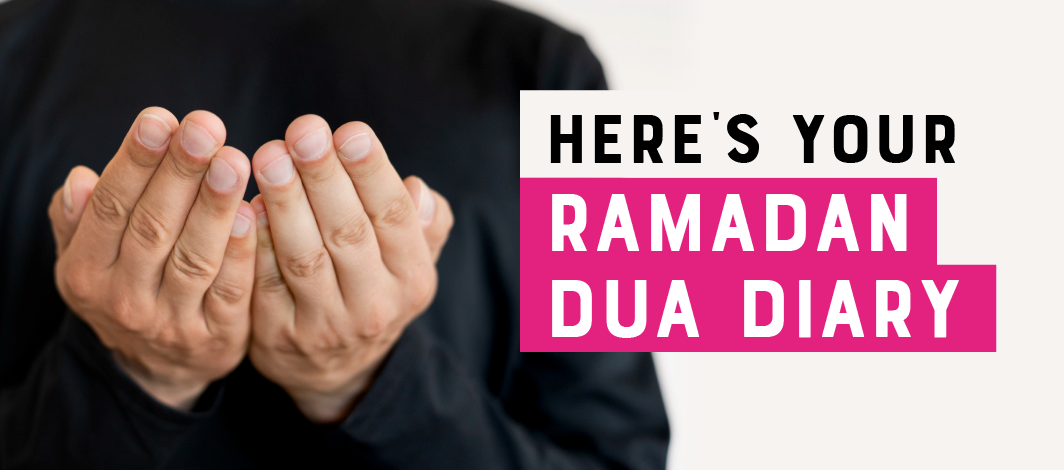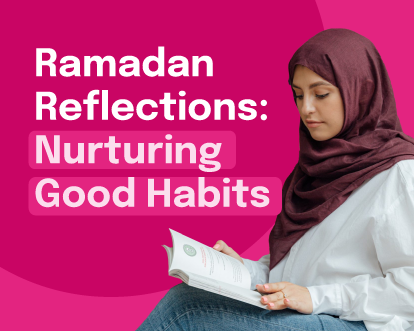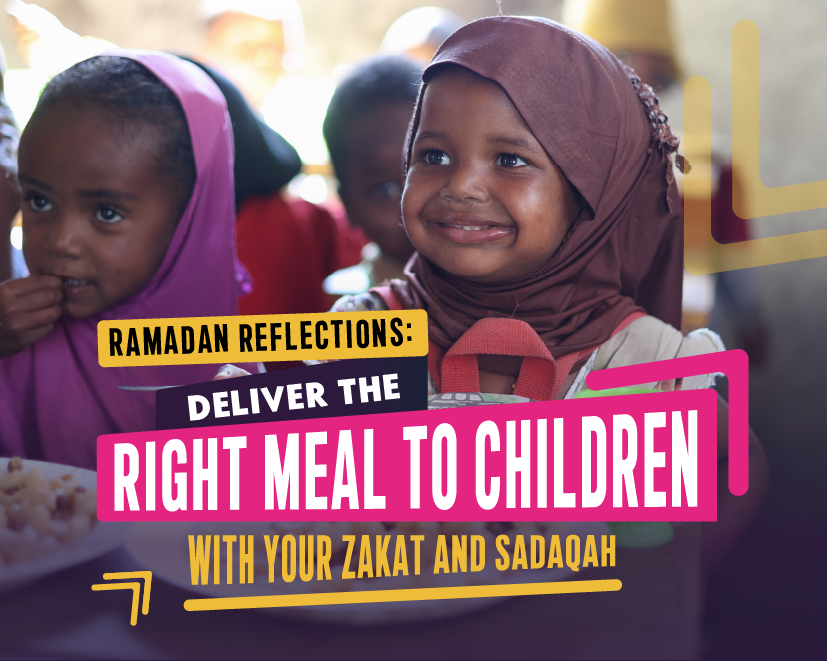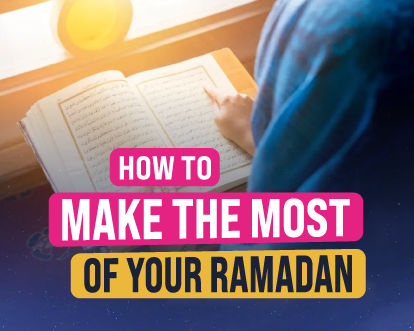The Role of Fasting in Islam
Ramadan is the ninth month of the Islamic lunar calendar, that starts and ends with the sighting of the crescent moon. It is the holiest of months for the Muslim ummah. Ramadan is a time of spiritual reflection, self-discipline, and increased devotion to Allah.
The act of fasting is the most devout way to show our faith in Allah during the holy month of ramadan. During this period the fasting person's intention is to abstain from food and drink during daylight hours. Millions upon millions of Muslims throughout the whole world observe this time of devotion to Allah (SWT).
While some may view fasting as a difficult and challenging task, it holds great importance for the followers of Islam and is an essential part of the blessed month.
Fasting during Ramadan is one of the Five Pillars of Islam and is obligatory for all adult Muslims who are physically and mentally capable of doing so. It is a time to focus on spiritual growth and to increase one’s devotion to Allah (SWT).
The Benefits of Fasting in Ramadan
Fasting is not only a way to physically cleanse the body but also to purify the soul by abstaining from worldly pleasures and focusing on prayer, charity, and good deeds.
Keeping a fast during the sacred month of Ramadan also helps to promote empathy and solidarity with those who are less fortunate. It is a reminder of the struggles of the poor and hungry, and the importance of charity and helping others.
Through fasting, Muslims learn to be grateful for the comforts that they have, and to develop a greater understanding of the suffering of others.
As Allah (SWT) is all merciful, he wants us to emulate his divine qualities. Love, forgiveness and humility are of paramount importance, especially in the blessed month of Ramadan, as our rewards are amplified manyfold.
Fasting during the holy month of Ramadan helps to create a sense of community and unity among Muslims. It is a time when families and friends come together to break their fast at iftar, and share in the blessings of the month. In addition to this mosques and community centres hold special events and activities, bringing people of all ages and backgrounds together to celebrate the holy month.
What Is the Dua for Fasting in Ramadan?
The dua for fasting during Ramadan is short and simple, yet it conveys a very clear message of verbal intention.
Reciting the dua, or supplication, is a vital component of fasting in Ramadan. Muslims recite this powerful prayer to seek Allah's blessings and guidance during their fast.
The dua for fasting is a means of asking for forgiveness for any wrongdoings, and seeking help and guidance from Allah. This prayer is typically recited at suhoor, the pre-dawn meal, and is an integral part of the fasting ritual.
This specific dua for fasting during Ramadan is a potent supplication:
وَبِصَوْمِ غَدٍ نَّوَيْتُ مِنْ شَهْرِ رَمَضَانَ
"Wa bisawmi ghadinn nawaiytu min shahri Ramadan"
This translates to:
"I intend to keep the fast tomorrow in the month of Ramadan."
This dua is recited in the early morning before the start of the fast, and it is a way to express one's intention to Allah and seek his help and guidance throughout the day.
By reciting this dua, the fasting person is reminded of the spiritual significance of their fast and the importance of seeking Allah's blessings and guidance during this holy month.
Which Other Dua Is Important for Fasting?
As there is a prayer to commence the fast, there is also one for breaking fast at the time of iftar.
Similarly to the dua for starting the fast: "Wa bisawmi ghadinn nawaiytu min shahri Ramadan" , the dua for breaking your fast in Ramadan is also a short yet impactful one:
"Allahumma inni-laka-sumtu, wa bika-aamantu, wa alayka tawakkaltu, wa ala rizq ika-aftartu"
This dua translates into english as:
"O Allah! I have fasted for You, and I believe in You and have put my trust in You, and I break the fast with what You have bestowed."
It is plain to see from the wording of this prayer, that your intention is of paramount importance, when it comes to committing a good deed for the sake of Allah (SWT). The level of reward that we receive from our lord Allah hinges on our intention, and if we are committing the acts with a sincere heart or not.
You must recite this iftar dua when you break your fast at sundown.
The Importance of Duas in Ramadan
Dua is a direct form of communication with Allah, and it is an act of worship that is deeply rooted in Islamic tradition.
There are many duas for Ramadan that we can recite to seek Allah's blessings in this special time.
Muslims are encouraged to make dua in all aspects of their lives, and the practice is particularly emphasised during Ramadan. The Prophet Muhammad (PBUH) said:
"When Ramadan comes, the doors of Paradise are opened, the doors of Hellfire are closed, and the devils are chained." (Sahih Bukhari).
This hadith highlights the special significance of Ramadan, and the increased importance of making dua during this blessed month.
How Ramadan Can Help Us Become Better Muslims
Making dua during Ramadan is not only a means of seeking Allah’s forgiveness, it also helps to strengthen our relationship with Allah. It is a time to reflect on our spiritual journey and seek guidance from Allah to become better Muslims.
While fasting, dua can help us to gain clarity, wisdom, and inner peace, and it is a powerful tool that can help us overcome challenges and difficulties that we may face in our daily lives.
Additionally, dua is a way to show gratitude to Allah for all the blessings that we have been given. It is an opportunity to recognise and acknowledge Allah’s mercy, compassion, and kindness towards us. The act of making dua can also help us to cultivate a sense of humility and faith in Allah, and it reminds us that we are all in need of Allah’s guidance and support.
Ramadan is a month of giving, and making dua for others is an act of charity that can benefit the entire Muslim community. The Prophet Muhammad (PBUH) said:
"The dua of a fasting person will not be rejected." (Tirmidhi).
This hadith emphasises the importance of making dua for others, and it highlights the special significance of duas made during Ramadan.
Allah (SWT) is always trying to provide us with ways of seeking forgiveness and redeeming ourselves, as he wants us to grow closer to him.
It is up to us to use these opportunities to be seen in a more favourable light in the eyes of the creator.
The Rewards of Reading the Quran in Ramadan
Although duas are extremely important and are the best way for us to disclose our intention to Allah (SWT), there are other forms of worship that are just as vital.
When we recite the Quran In Ramadan, the reward Allah grants us is much greater than usual.
In fact the level of reward for good deeds in Ramadan is seventy times greater than it would be in any other month.
So it is crucial that we ensure that Allah knows that we intend to please him in a time when our rewards are multiplied. If we show apathy towards this, Allah will know, and our estimations will go down in his eyes.
The Value of Maintaining Healthy Relationships During Ramadan
Being kind to others is one of many beloved acts in Islam. Although this may be overlooked by some, it is of extreme importance that we keep our relationships healthy during the holy month of Ramadan.
Allah makes it clear that family ties are of the utmost importance.
it is narrated that the Prophet (PBUH) said:
"The word 'ar-rahm (womb) derives its name from Ar-Rahman (i.e., one of the names of Allah) and Allah said: 'I will keep good relation with the one who will keep good relation with you, (womb, i.e. kith and kin) and sever the relation with him who will sever the relation with you, (womb, i.e. kith and kin).’” (Sahih al-Bukhari)
It is evident from this hadith that Allah wants us to emulate his divine qualities in our lives, not only for his satisfaction and approval, but for our own wellbeing.
The Blessings of Laylatul Qadr
One of the best ways to make the most of Allah's mercy in Ramadan, is by worshipping him on the night of power, known in Arabic as Laylatul Qadr.
On this night, Allah will reward a single good deed with the blessing of a thousand months. This is truly astonishing as it demonstrates just how much Allah wants us to be closer to him.
The prophet was asked by his beloved wife, Aisha, how to worship Allah (SWT) on the night of power. He replied by telling her to recite the Laylatul Qadr dua, which is as follows:
“Allahumma, innaka Afuwwun Karimun, tuḥibbu al-afwa fa'afu anna”
This translates as:
“O Allah, indeed You are Pardoning and Generous; You love to pardon, so pardon us.”
May Allah guide us all through the trials and tribulations of Ramadan and help us make the most of this sacred month.
The night of power is truly a special time for us to connect with Allah and seek his mercy.
By reciting this dua, we can show our gratitude and seek Allah's forgiveness for our sins.








